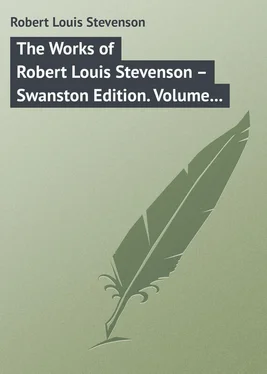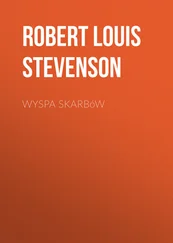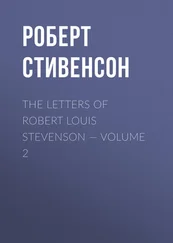Robert Stevenson - The Works of Robert Louis Stevenson – Swanston Edition. Volume 17
Здесь есть возможность читать онлайн «Robert Stevenson - The Works of Robert Louis Stevenson – Swanston Edition. Volume 17» — ознакомительный отрывок электронной книги совершенно бесплатно, а после прочтения отрывка купить полную версию. В некоторых случаях можно слушать аудио, скачать через торрент в формате fb2 и присутствует краткое содержание. ISBN: , Жанр: foreign_prose, на английском языке. Описание произведения, (предисловие) а так же отзывы посетителей доступны на портале библиотеки ЛибКат.
- Название:The Works of Robert Louis Stevenson – Swanston Edition. Volume 17
- Автор:
- Жанр:
- Год:неизвестен
- ISBN:http://www.gutenberg.org/ebooks/31012
- Рейтинг книги:4 / 5. Голосов: 1
-
Избранное:Добавить в избранное
- Отзывы:
-
Ваша оценка:
- 80
- 1
- 2
- 3
- 4
- 5
The Works of Robert Louis Stevenson – Swanston Edition. Volume 17: краткое содержание, описание и аннотация
Предлагаем к чтению аннотацию, описание, краткое содержание или предисловие (зависит от того, что написал сам автор книги «The Works of Robert Louis Stevenson – Swanston Edition. Volume 17»). Если вы не нашли необходимую информацию о книге — напишите в комментариях, мы постараемся отыскать её.
The Works of Robert Louis Stevenson – Swanston Edition. Volume 17 — читать онлайн ознакомительный отрывок
Ниже представлен текст книги, разбитый по страницам. Система сохранения места последней прочитанной страницы, позволяет с удобством читать онлайн бесплатно книгу «The Works of Robert Louis Stevenson – Swanston Edition. Volume 17», без необходимости каждый раз заново искать на чём Вы остановились. Поставьте закладку, и сможете в любой момент перейти на страницу, на которой закончили чтение.
Интервал:
Закладка:
All this, it will be observed, was going forward in that neutral territory, sanctified by treaty against the presence of armed Samoans. The insurgents themselves looked on in wonder: on the 4th, trembling to transgress against the great Powers, they had written for a delimitation of the Eleele Sa ; and Becker, in conversation with the British consul, replied that he recognised none. So long as Tamasese held the ground, this was expedient. But suppose Tamasese worsted, it might prove awkward for the stores, mills, and offices of a great German firm, thus bared of shelter by the act of their own consul.
On the morning of the 9th September, just ten days after the death of Saifaleupolu, Mataafa, under the name of Malietoa To’oa Mataafa, was crowned king at Faleula. On the 11th he wrote to the British and American consuls: “Gentlemen, I write this letter to you two very humbly and entreatingly, on account of this difficulty that has come before me. I desire to know from you two gentlemen the truth where the boundaries of the neutral territory are. You will observe that I am now at Vaimoso [a step nearer the enemy], and I have stopped here until I knew what you say regarding the neutral territory. I wish to know where I can go, and where the forbidden ground is, for I do not wish to go on any neutral territory, or on any foreigner’s property. I do not want to offend any of the great Powers. Another thing I would like. Would it be possible for you three consuls to make Tamasese remove from German property? for I am in awe of going on German land.” He must have received a reply embodying Becker’s renunciation of the principle, at once; for he broke camp the same day, and marched eastward through the bush behind Apia.
Brandeis, expecting attack, sought to improve his indefensible position. He reformed his centre by the simple expedient of suppressing it. Apia was evacuated. The two flanks, Mulinuu and Matautu, were still held and fortified, Mulinuu (as I have said) to the isthmus, Matautu on a line from the bayside to the little river Fuisá. The centre was represented by the trajectory of a boat across the bay from one flank to another, and was held (we may say) by the German war-ship. Mataafa decided (I am assured) to make a feint on Matautu, induce Brandeis to deplete Mulinuu in support, and then fall upon and carry that. And there is no doubt in my mind that such a plan was bruited abroad, for nothing but a belief in it could explain the behaviour of Brandeis on the 12th. That it was seriously entertained by Mataafa I stoutly disbelieve; the German flag and sailors forbidding the enterprise in Mulinuu. So that we may call this false intelligence the beginning and the end of Mataafa’s strategy.
The whites who sympathised with the revolt were uneasy and impatient. They will still tell you, though the dates are there to show them wrong, that Mataafa, even after his coronation, delayed extremely: a proof of how long two days may seem to last when men anticipate events. On the evening of the 11th, while the new king was already on the march, one of these walked into Matautu. The moon was bright. By the way he observed the native houses dark and silent; the men had been about a fortnight in the bush, but now the women and children were gone also; at which he wondered. On the sea-beach, in the camp of the Tamaseses, the solitude was near as great; he saw three or four men smoking before the British consulate, perhaps a dozen in all; the rest were behind in the bush upon their line of forts. About the midst he sat down, and here a woman drew near to him. The moon shone in her face, and he knew her for a householder near by, and a partisan of Mataafa’s. She looked about her as she came, and asked him, trembling, what he did in the camp of Tamasese. He was there after news, he told her. She took him by the hand. “You must not stay here, you will get killed,” she said. “The bush is full of our people, the others are watching them, fighting may begin at any moment, and we are both here too long.” So they set off together; and she told him by the way that she had came to the hostile camp with a present of bananas, so that the Tamasese men might spare her house. By the Vaisingano they met an old man, a woman, and a child; and these also she warned and turned back. Such is the strange part played by women among the scenes of Samoan warfare, such were the liberties then permitted to the whites, that these two could pass the lines, talk together in Tamasese’s camp on the eve of an engagement, and pass forth again bearing intelligence, like privileged spies. And before a few hours the white man was in direct communication with the opposing general. The next morning he was accosted “about breakfast-time” by two natives who stood leaning against the pickets of a public-house, where the Siumu road strikes in at right angles to the main street of Apia. They told him battle was imminent, and begged him to pass a little way inland and speak with Mataafa. The road is at this point broad and fairly good, running between thick groves of cocoa-palm and breadfruit. A few hundred yards along this the white man passed a picket of four armed warriors, with red handkerchiefs and their faces blackened in the form of a full beard, the Mataafa rallying signs for the day; a little farther on, some fifty; farther still, a hundred; and at last a quarter of a mile of them sitting by the wayside armed and blacked. Near by, in the verandah of a house on a knoll, he found Mataafa seated in white clothes, a Winchester across his knees. His men, he said, were still arriving from behind, and there was a turning movement in operation beyond the Fuisá, so that the Tamaseses should be assailed at the same moment from the south and east. And this is another indication that the attack on Matautu was the true attack; had any design on Mulinuu been in the wind, not even a Samoan general would have detached these troops upon the other side. While they still spoke, five Tamasese women were brought in with their hands bound; they had been stealing “our” bananas.
All morning the town was strangely deserted, the very children gone. A sense of expectation reigned, and sympathy for the attack was expressed publicly. Some men with unblacked faces came to Moors’s store for biscuit. A native woman, who was there marketing, inquired after the news, and, hearing that the battle was now near at hand, “Give them two more tins,” said she; “and don’t put them down to my husband – he would growl; put them down to me.” Between twelve and one, two white men walked toward Matautu, finding as they went no sign of war until they had passed the Vaisingano and come to the corner of a by-path leading to the bush. Here were four blackened warriors on guard, – the extreme left wing of the Mataafa force, where it touched the waters of the bay. Thence the line (which the white men followed) stretched inland among bush and marsh, facing the forts of the Tamaseses. The warriors lay as yet inactive behind trees; but all the young boys and harlots of Apia toiled in the front upon a trench, digging with knives and cocoa-shells; and a continuous stream of children brought them water. The young sappers worked crouching; from the outside only an occasional head, or a hand emptying a shell of earth, was visible; and their enemies looked on inert from the line of the opposing forts. The lists were not yet prepared, the tournament was not yet open; and the attacking force was suffered to throw up works under the silent guns of the defence. But there is an end even to the delay of islanders. As the white men stood and looked, the Tamasese line thundered into a volley; it was answered; the crowd of silent workers broke forth in laughter and cheers; and the battle had begun.
Конец ознакомительного фрагмента.
Интервал:
Закладка:
Похожие книги на «The Works of Robert Louis Stevenson – Swanston Edition. Volume 17»
Представляем Вашему вниманию похожие книги на «The Works of Robert Louis Stevenson – Swanston Edition. Volume 17» списком для выбора. Мы отобрали схожую по названию и смыслу литературу в надежде предоставить читателям больше вариантов отыскать новые, интересные, ещё непрочитанные произведения.
Обсуждение, отзывы о книге «The Works of Robert Louis Stevenson – Swanston Edition. Volume 17» и просто собственные мнения читателей. Оставьте ваши комментарии, напишите, что Вы думаете о произведении, его смысле или главных героях. Укажите что конкретно понравилось, а что нет, и почему Вы так считаете.










